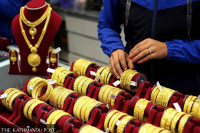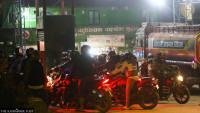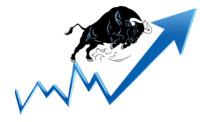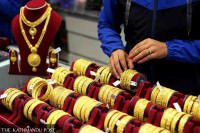Money
Elections fail to perk up the economy
Market appears to be in slumber with no spending a general election expectedly triggers.
Sangam Prasain & Krishana Prasain
Polling day is less than a week away, and the high-pitch campaigning has reached a crescendo; but the same fervour is not being seen in the economy as the expected election bonanza has failed to materialise.
Domestic airlines are flying half-empty planes, retailers are reporting low demand for meat, restaurant owners say only a few diners are walking in through the doors, and beverage dealers say alcohol consumption has dropped to an all-time low.
The market appears to be in slumber with none of the spending frenzy the election was expected to set off. There is no money in the market, and considering the current scenario, the country could well be in recession, economists say.
Generally, elections are associated with frantic spending as the government pumps billions of rupees into the market. Candidates open their wallets wide to entice voters which lights up the market.
Spending propels economic growth whenever elections are held, but that is strangely not happening in Nepal right now, according to economists.
Abdur Rhaman, proprietor of Rhaman Halal Meat Shop in Maharajgunj, said the mood is not as lively as during the last election in 2017.
“Demand for meat in Kathmandu Valley used to soar during election season. This year, the market does not seem to be upbeat.” He puts it down to high inflation.
The country has been hit hard by high interest rates, stubborn inflation, high input costs, and a slowdown in investments.
A ban on the import of vehicles, alcohol, mobiles and other goods has been in place for the past six months; and import duty, a major source of revenue for the government, has slowed to a trickle.
A big setback for the economy, according to industry insiders, is the slowdown in the real estate market which has traditionally boosted consumption.
“Prices have gone up, and people have less money in their pockets now,” said economist Govinda Nepal. “The slowdown in the economy has significantly curtailed campaign spending.”
According to Nepal, people have invested heavily in the share market and real estate, and both are in sleep mode.
“The business community that used to donate generously to the campaign fund has become stingy, and is giving little to the political parties and their cadre this time,” he said. “This indicates there is little money in the market.”
The war in Ukraine has dimmed prospects of a post-pandemic economic recovery for small economies like Nepal.
According to a World Bank report, the global economy continues to be weakened by the war through significant disruptions in trade and food and fuel price shocks, all of which are contributing to high inflation and subsequent tightening in global financing conditions.
Nepali importers and traders say that donation drives, too, have slowed compared to the 2017 election.
“Business is almost zero. Why should we donate to political parties?” said an unnamed automobile trader. “It looks like political leaders are now capable of spending themselves. They have enough money. We don’t know how they earn so much.”
Airlines officials say they haven’t seen such a subdued market before. Some carriers such as Buddha Air have started to merge flights due to low traffic volume.
Officials reminisce about the last election in 2017, a bumper year for domestic airlines when they saw a 39.47 percent jump in air passenger movement.
The liquor market, too, is slowing. When the government banned the import of foreign liquors in April, domestic producers had hoped to rule the market. But the hope has been belied.
“Production has declined as banks are not financing the liquor industry. Demand for alcohol is high, but we don’t have sufficient production and there are no stocks,” said a domestic liquor manufacturer, who spoke on condition of anonymity.
Shaligram Sharma Paudel, assistant spokesperson for the Election Commission, said the projected cost of holding the general and provincial assembly elections is Rs10 billion.
Nepal is going to the polls on Sunday to elect 275 members to the House of Representatives and 550 members to the seven provincial assemblies. There are 5,636 candidates in the fray across the country.
In 2017, the federal and provincial polls were held in two phases— November 26 and December 7.
A study carried out by a domestic election observer group has shown that the government, political parties and candidates spent an estimated Rs131.63 billion in total during the elections to the three tiers in 2017.
In this year’s general election, the Election Commission has allowed candidates to spend a maximum of Rs3.3 million each.
The individual spending ceiling allowed for Provincial Assembly representatives ranges from Rs1.5 million to Rs2.3 million.
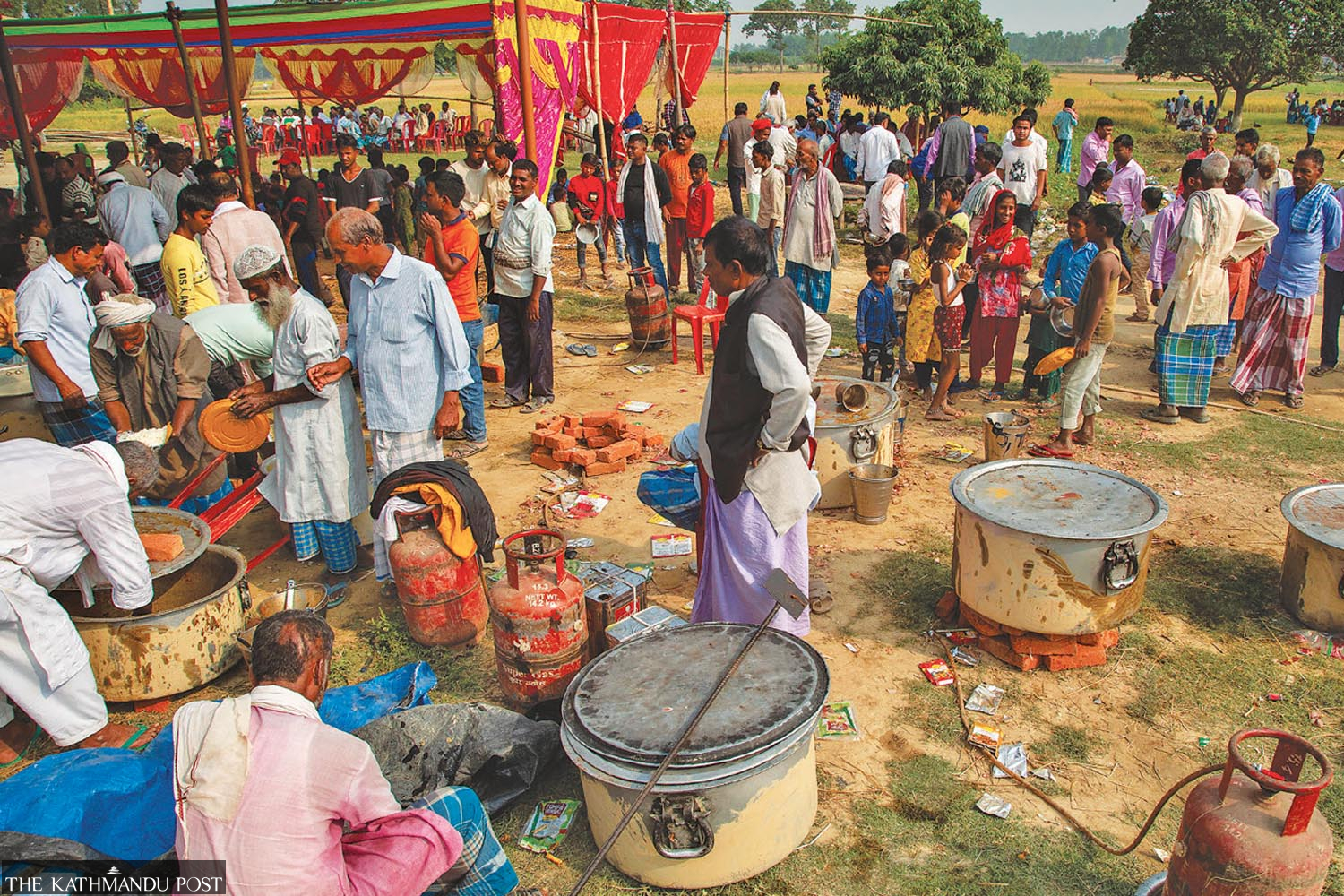
The private sector says this is a tough time to do business in Nepal due to the slowdown.
“The private sector is facing a difficult economic situation as there are problems everywhere. We are not very excited about the elections,” said Rajesh Kazi Shrestha, immediate past president of the Nepal Chamber of Commerce.
"The election atmosphere in Kathmandu, the country’s political and economic hub, is subdued," Shrestha said.
Chiranjivi Nepal, former governor of Nepal Rastra Bank, said, “There is not enough money in the market and inflation is rising. This makes the country’s elections less joyful. The general elections are being conducted at a time when the economic indicators are not performing well.”
Several studies have shown that the economy generally expands by 1 to 2 percent during election year, according to the former governor. “That’s not happening in Nepal if we observe the flow of money in the market,” he said.
“In Nepal, the Election Commission has issued a slew of restrictions on spending by the candidates. The expenditure ceiling has, to some extent, strangled the market boom at this critical time when the economy is not performing well,” he said.
The Asian Development Bank has downgraded Nepal’s growth forecast for the current fiscal year as the economy takes a beating from high inflation, slowing trade and monetary tightening.
The Manila-based bank says Nepal’s economy is estimated to expand by 4.7 percent in the fiscal year 2022-23, down from an estimated 5.8 percent in the last fiscal year, despite the election season.
The country’s financial system is also going through a tough time due to the soaring imports that have depleted the country’s foreign exchange reserves.
Anil Kumar Upadhyay, president of the Nepal Bankers' Association, said that the impact of the post-Covid-19 pandemic and the emerging global recession due to the Russia-Ukraine war was being felt in Nepal too.
“Sales have declined by half compared to a year ago as per the business community. Inflation has been rising and the United States dollar is becoming stronger,” he said.
Businesses and industrialists say the country’s manufacturing and trading sectors are not performing well due to a liquidity crunch. Production has dropped below 50 percent, according to industrialists.
The government collected revenue totalling Rs231.33 billion in the first quarter of the current fiscal year against the target of Rs275.71 billion.
"Capital expenditure is low, the government’s revenue has shrunk, inflation has soared beyond control, and manufacturers have started cutting production," said Upadhyay. “There were hopes that the elections would bring money into the market. But there is nothing to cheer about.”
Economists say that election spending and consumption in urban areas have been dismal; but in the villages, there is a boom going on.
Former finance secretary Rameshore Khanal says candidates in the villages are spending more.
“Election campaigns and spending are not visible in urban areas including in Kathmandu. Campaigners are focusing on the villages. Political leaders have a lot of money, both legal and illegal, to spend," said Khanal.
“The slowdown has hurt the public, business firms and the economy, but not political leaders.”
Khanal said that the Election Commission gave little time to the candidates for campaigning, and also put restrictive measures on their spending which resulted in low money supply in the market.
The private sector said there was less pressure from political parties to donate to their campaign funds as almost all of them have a lot of money.
As per economist Nepal, the election atmosphere in urban areas is not that lively in terms of expenditure; but in rural areas, big campaigns and feasts are being held to entice voters.
“The established political parties and their cadre are spending money while independent candidates are campaigning on a small budget, mostly through social media,” he said.
Bhanu Parajuli, former president of the Livestock Trading Association, said that demand for meat outside Kathmandu Valley was up 10 percent compared to the 2017 elections.
“In urban areas, meat sales are subdued. Election celebrations and feasts are mostly being organised outside Kathmandu Valley this year,” Parajuli said.




 11.52°C Kathmandu
11.52°C Kathmandu

